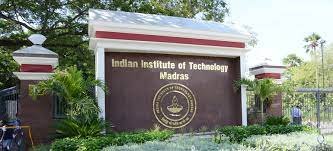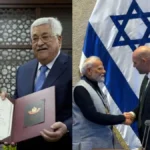IIT Madras to Establish New Campus in Kandy, Sri Lanka: Boosting Educational Ties
In a significant development, the Indian Institute of Technology (IIT) Madras has announced its plans to set up a new campus in Kandy, Sri Lanka. This expansion is a testament to the growing collaboration in the field of education between India and Sri Lanka. As students across the country gear up for various government exams, the establishment of this new campus brings forth potential opportunities and implications for those aspiring to excel in fields ranging from teaching and policing to banking, railways, defense, and civil services like PSCS to IAS.

Why this News is Important:
Strengthening Bilateral Educational Ties: India and Sri Lanka have long shared strong cultural and historical ties. The decision of IIT Madras to establish a campus in Kandy signifies a deepening of educational cooperation between the two nations, providing students with more diverse and collaborative learning opportunities.
Global Exposure for Indian Students: For students preparing for government exams, especially those eyeing civil service positions, this development opens up avenues for global exposure. The international campus offers a unique learning environment, broadening the horizons of aspiring bureaucrats.
Impact on Technical Education: The establishment of an IIT campus in Sri Lanka underscores the focus on technical education. Aspirants for positions in engineering, technology, and related fields will find this development particularly relevant, as it reflects the emphasis on nurturing technical expertise.
Historical Context:
Background: The collaboration between India and Sri Lanka in the field of education has a historical backdrop. Over the years, both nations have engaged in cultural and educational exchanges, fostering a mutual understanding. The decision of IIT Madras to extend its presence to Sri Lanka builds upon this rich history of cooperation.
Previous Educational Collaborations: Historically, various Indian educational institutions have ventured beyond national borders to establish international campuses. The move by IIT Madras follows a trend of prestigious Indian institutions aiming to create global learning hubs, contributing to the exchange of knowledge and expertise.
Key Takeaways from IIT Madras’ Expansion to Kandy, Sri Lanka:
| Serial Number | Key Takeaway |
|---|---|
| 1. | Strategic Diplomacy: The move reflects strategic diplomatic ties between India and Sri Lanka in the realm of education. |
| 2. | Global Opportunities: Aspiring bureaucrats and professionals gain access to international exposure and collaborations. |
| 3. | Technical Education Emphasis: The expansion emphasizes the importance of technical education in the bilateral relationship. |
| 4. | Cultural and Historical Significance: The establishment builds upon the historical cultural ties between the two nations. |
| 5. | Potential Career Paths: Students preparing for government exams can explore diverse career paths with a global perspective. |
Important FAQs for Students from this News
Q1: Why is IIT Madras establishing a campus in Kandy, Sri Lanka?
A1: The establishment of the IIT Madras campus in Kandy, Sri Lanka, aims to strengthen educational ties between India and Sri Lanka, providing diverse learning opportunities.
Q2: How does this expansion impact students preparing for government exams?
A2: The expansion offers global exposure, particularly beneficial for civil service aspirants, and emphasizes technical education, influencing career paths.
Q3: What historical context is associated with this collaboration?
A3: The collaboration builds upon the historical cultural ties between India and Sri Lanka and aligns with previous instances of Indian institutions establishing international campuses.
Q4: How does this development contribute to strategic diplomacy?
A4: The move reflects strategic diplomatic ties in the education sector between India and Sri Lanka, fostering mutual understanding.
Q5: What are the key takeaways for government exam aspirants?
A5: Key takeaways include strategic diplomacy, global opportunities, technical education emphasis, cultural significance, and potential career paths.
Some Important Current Affairs Links

















